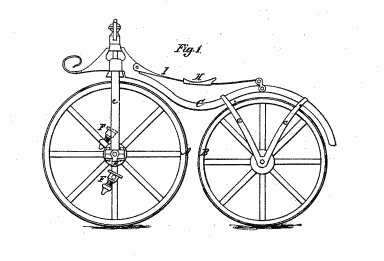Patents & Standards
 "Congress shall have Power ... To promote the Progress of Science and useful Arts, by securing for limited Times to Authors and Inventors the exclusive Right to their respective Writings and Discoveries;" - US Constitution, Article I, Section 8
"Congress shall have Power ... To promote the Progress of Science and useful Arts, by securing for limited Times to Authors and Inventors the exclusive Right to their respective Writings and Discoveries;" - US Constitution, Article I, Section 8
Related EMU Library Research Guides
How to cite a patent
Search for Patents
-
U.S. Patent and Trademark Office searchUnited States patents since 1790. Patent documents since 1976 are searchable by full text; earlier documents exist as TIFF images.
-
Official Gazette for PatentsThe Official Gazette for Patents is published by the US Patent and Trade Office, in electronic form only, and contains bibliographic text and a representative drawing from each patent issued that week.
-
Canadian Patents DatabaseThis database lets you access 91 years of patent descriptions and images. You can search, retrieve and study more than 2,080,000 patent documents.
-
EPO - EspacenetFree access to more than 70 million patent documents worldwide, containing information about inventions and technical developments from 1836 to today. From the European Patent Office.
-
PATENTSCOPE - World Intellectual Property OrganizationSearch over 10,000,000 international patent documents including 2,000,000 published patent applications
-
Google PatentsGoogle search of the USPTO data; US patents from 1790 to the present
Standards
-
ASC ASX12Accredited Standards Committee. ASX 12 develops and maintains EDI and CICA standards along with XML schemas
-
ANSI -- American National Standards InstituteANSI online document library
-
ASTM -- American Society of Testing MaterialsThe ASTM Standards and Engineering Digital Library is a vast collection of industry-leading standards and technical engineering information. The Library covers a broad range of engineering disciplines, including aerospace, biomedical, chemical, civil, environmental, geological, health and safety, industrial, materials science, mechanical, nuclear, petroleum, soil science, and solar engineering.
-
IEEE StandardsThere are some IEEE standards available at no charge. This site also contains order forms for standards for which there is a fee.
-
ISO -- International Standards OrganizationYou can browse or search over 19,500 International Standards in the online catalog.
-
OSHA StandardsThis site contains links to all current OSHA standards
Web Resources - General Science
-
Millipore SigmaSigma-Aldrich is a leading Life Science and High Technology company. Their chemical and biochemical products and kits are used in scientific research, including genomic and proteomic research, biotechnology, pharmaceutical development, the diagnosis of disease and as key components in pharmaceutical, diagnostic and other high technology manufacturing.
-
Video LecturesThe main purpose of VideoLectures.net is to provide free and open access of high quality video lectures by distinguished scholars and scientists at the most important and prominent events like conferences, summer schools, workshops and science promotional events from many fields of science. The portal is aimed at promoting science, exchanging ideas and fostering knowledge sharing by providing high quality didactic contents not only to a scientific community but also to a general public.
